Deepak Chopra Wants You to Stop Being Hopeful & Start Being Grateful
The wellness guru’s best advice for finding peace and clarity during the pandemic.
17 February, 2021
Wellness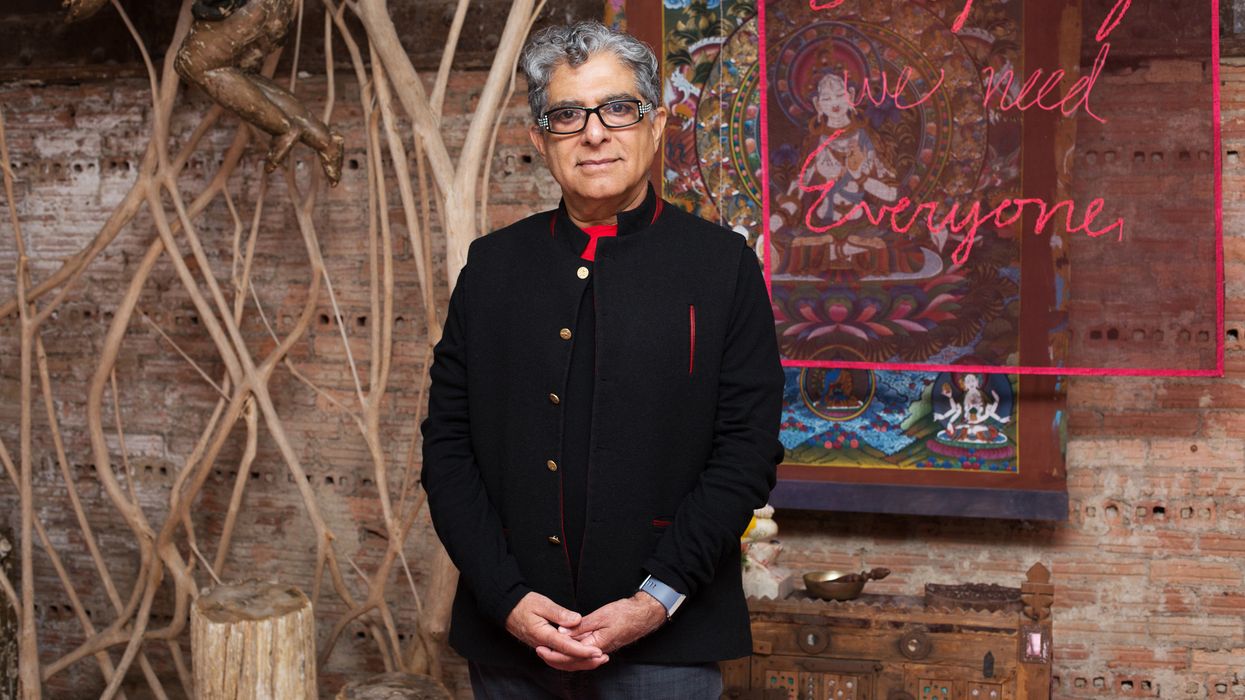
BriAnne Wills
10 November, 2021
Take a deep breath. How long has it been since you did a check-in with yourself? We’ve been living through an existential spiral for nearly a year now, and the level of anxiety it has unleashed on our daily lives is extraordinary. Since it looks like we still have some tough months ahead, I figured it was high time to learn a more sustainable way to harness our feelings of unease.
Enter Deepak Chopra. Yes, theDeepak Chopra—legendary doctor, meditation expert, wellness guru, and best-selling author. Known for his teachings on gratitude, I knew he was the voice we all needed to hear right now. For Chopra, gratitude is a path out of helplessness. It’s a way to nourish our bodies and an outlook that allows us to find peace, even when it feels most unlikely.
And trust me, the man clearly knows a thing or two about staying the course during difficult times (and the meaning of productivity). In the past year alone, he’s launched the Chopra App and Digital Deepak (his AI twin!), published his 91st book, founded Never Alone (a global mental health initiative), and headlined a star-studded public health campaign with the International WELL Building Institute.
When we spoke, his warm presence and invaluable insight radiated through my Zoom screen. Our conversation opened the door to questions and realizations I’d been blocking out for months. During a time when even a quick trip to the grocery store can feel overwhelming, Chopra offers us a road map towards a less anxiety-riddled life.
Enter Deepak Chopra. Yes, theDeepak Chopra—legendary doctor, meditation expert, wellness guru, and best-selling author. Known for his teachings on gratitude, I knew he was the voice we all needed to hear right now. For Chopra, gratitude is a path out of helplessness. It’s a way to nourish our bodies and an outlook that allows us to find peace, even when it feels most unlikely.
And trust me, the man clearly knows a thing or two about staying the course during difficult times (and the meaning of productivity). In the past year alone, he’s launched the Chopra App and Digital Deepak (his AI twin!), published his 91st book, founded Never Alone (a global mental health initiative), and headlined a star-studded public health campaign with the International WELL Building Institute.
When we spoke, his warm presence and invaluable insight radiated through my Zoom screen. Our conversation opened the door to questions and realizations I’d been blocking out for months. During a time when even a quick trip to the grocery store can feel overwhelming, Chopra offers us a road map towards a less anxiety-riddled life.
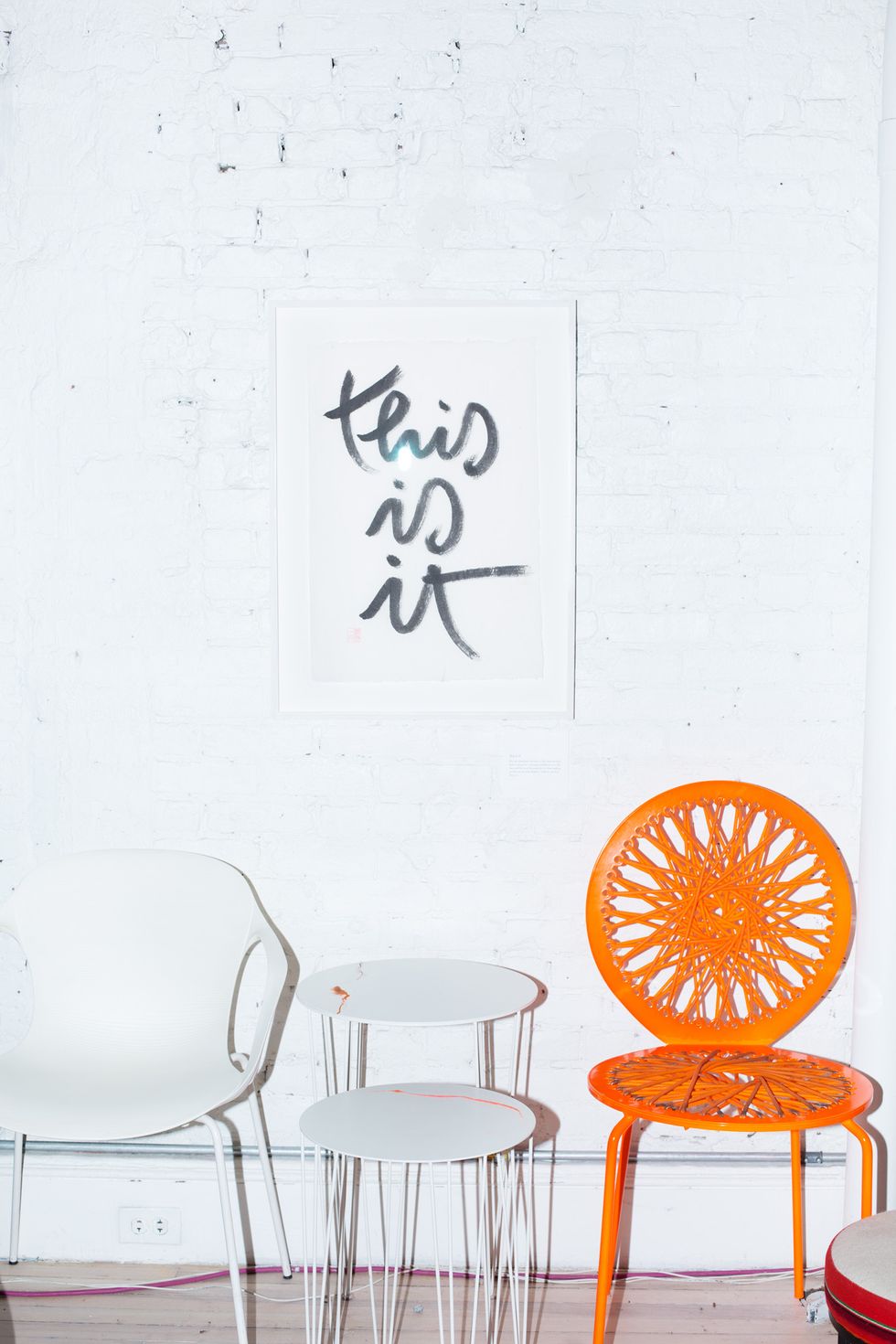
How can a meditation or gratitude practice bring some sense of control or constancy to our current realities?
“What we’re experiencing across the human landscape right now is various stages of grief. We took a way of life for granted. Now it’s gone, and people are handling it in different ways.
“The first stage of grief is victimization. The second stage is anger and hostility. Next, it starts to become resentment. Then frustration and helplessness. Many people don’t get beyond that. But there’s another stage of grief that we call acceptance—you begin to accept what is happening around you because there is no other choice. When you find acceptance, you find peace. And when you find peace, you find meaning, purpose, and gratitude. That’s the usual sequence of recovery from tragedy or loss.
“I come from a tradition where you don’t take life for granted. You’re grateful that you exist every day. As soon as you acknowledge what you’re grateful for, it opens the door to opportunities, to synchronicity, to abundance. Most importantly, it opens the door to self-regulation of the body.
“Several years ago, we published a study of patients with chronic heart failure. We put them into two groups. One was just getting medication for congestive heart failure. The other was getting the same medication, but was also instructed to keep a gratitude journal every night. The difference was tenfold in terms of recovery, compliance with treatment, and reduction of inflammatory markers.
“You have a choice between grievance or gratitude in every moment. I think we’re on the verge of being able to prove that biologically. If you go the way of grievance, your body becomes inflamed. If you go the way of gratitude, your body starts to go in the direction of self-regulation and healing.
“Of course, there are other things that happen with gratitude. You have greater insight, more intuition, more creativity. There is no creativity if you’re feeling victimized, no creativity if you’re angry. But if you have gratitude, you open that door.”
“What we’re experiencing across the human landscape right now is various stages of grief. We took a way of life for granted. Now it’s gone, and people are handling it in different ways.
“The first stage of grief is victimization. The second stage is anger and hostility. Next, it starts to become resentment. Then frustration and helplessness. Many people don’t get beyond that. But there’s another stage of grief that we call acceptance—you begin to accept what is happening around you because there is no other choice. When you find acceptance, you find peace. And when you find peace, you find meaning, purpose, and gratitude. That’s the usual sequence of recovery from tragedy or loss.
“I come from a tradition where you don’t take life for granted. You’re grateful that you exist every day. As soon as you acknowledge what you’re grateful for, it opens the door to opportunities, to synchronicity, to abundance. Most importantly, it opens the door to self-regulation of the body.
“Several years ago, we published a study of patients with chronic heart failure. We put them into two groups. One was just getting medication for congestive heart failure. The other was getting the same medication, but was also instructed to keep a gratitude journal every night. The difference was tenfold in terms of recovery, compliance with treatment, and reduction of inflammatory markers.
“You have a choice between grievance or gratitude in every moment. I think we’re on the verge of being able to prove that biologically. If you go the way of grievance, your body becomes inflamed. If you go the way of gratitude, your body starts to go in the direction of self-regulation and healing.
“Of course, there are other things that happen with gratitude. You have greater insight, more intuition, more creativity. There is no creativity if you’re feeling victimized, no creativity if you’re angry. But if you have gratitude, you open that door.”
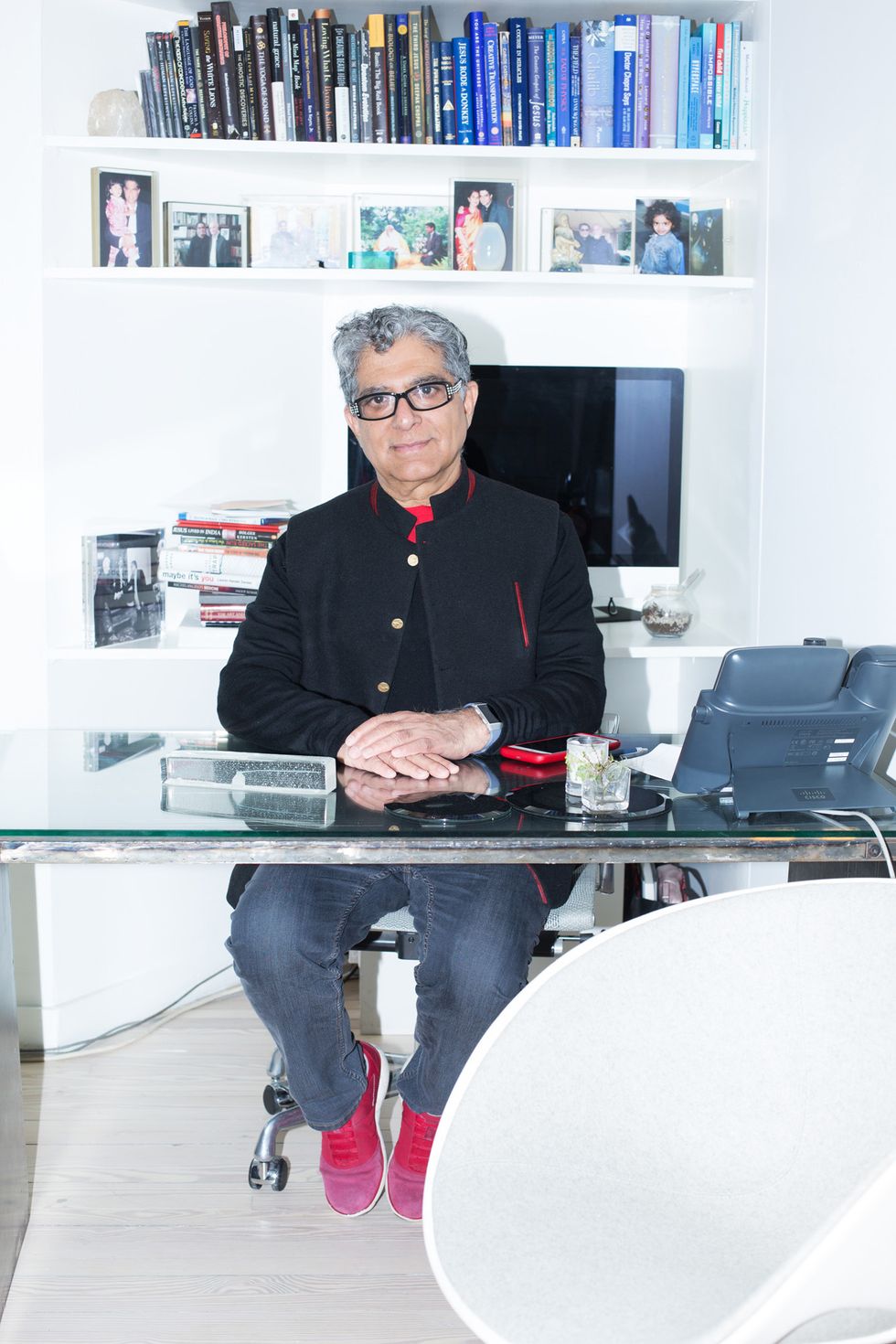
Even if you’re personally doing OK right now (healthy, employed, etc.), it’s easy to feel bogged down by the mass suffering around us. Is it possible to hold that kind of empathy, but not let it overwhelm you?
“It takes insight to realize that the state of the world is a projection of our collective consciousness. If there is war, it’s because we’ve agreed to have war. If there are weapons and mechanized death, we’ve agreed to it. If there is ideological conflict, we’ve agreed to have that conflict.
“Once you realize that the world is a projection of yourself—collectively—then you need to not engage with that. I used to engage in debate, but I don’t anymore. Right now I only engage with the questions: How can I be the change that I want to see in the world? And how can I hang out with other people inside that same framework? And maybe even reach a critical mass that’ll create a more peaceful, just, sustainable, and joyful world. If I was to worry about the state of the world, I’d be paralyzed.
“People always ask, do you have hope? I think that is an oxymoron. You only have hope when you have despair. If you’re grateful, you’re independent from both hope and despair. You don’t need either when what you have is creativity.”
Now feels like an unlikely time for many people to practice gratitude. For someone who might be more cynical, how would you recommend they wade into the waters of gratitude?
“First of all, I’d make a distinction between cynicism and skepticism. Skepticism says ‘I will believe it if you show me the proof.’ A cynic has already made up their mind. For that reason, I don’t bother with cynics. Cynicism is a risk factor for sudden death from cardiovascular disease, so if you want to be a cynic, go ahead—you won’t get the benefits of gratitude [laughter].”
“It takes insight to realize that the state of the world is a projection of our collective consciousness. If there is war, it’s because we’ve agreed to have war. If there are weapons and mechanized death, we’ve agreed to it. If there is ideological conflict, we’ve agreed to have that conflict.
“Once you realize that the world is a projection of yourself—collectively—then you need to not engage with that. I used to engage in debate, but I don’t anymore. Right now I only engage with the questions: How can I be the change that I want to see in the world? And how can I hang out with other people inside that same framework? And maybe even reach a critical mass that’ll create a more peaceful, just, sustainable, and joyful world. If I was to worry about the state of the world, I’d be paralyzed.
“People always ask, do you have hope? I think that is an oxymoron. You only have hope when you have despair. If you’re grateful, you’re independent from both hope and despair. You don’t need either when what you have is creativity.”
Now feels like an unlikely time for many people to practice gratitude. For someone who might be more cynical, how would you recommend they wade into the waters of gratitude?
“First of all, I’d make a distinction between cynicism and skepticism. Skepticism says ‘I will believe it if you show me the proof.’ A cynic has already made up their mind. For that reason, I don’t bother with cynics. Cynicism is a risk factor for sudden death from cardiovascular disease, so if you want to be a cynic, go ahead—you won’t get the benefits of gratitude [laughter].”
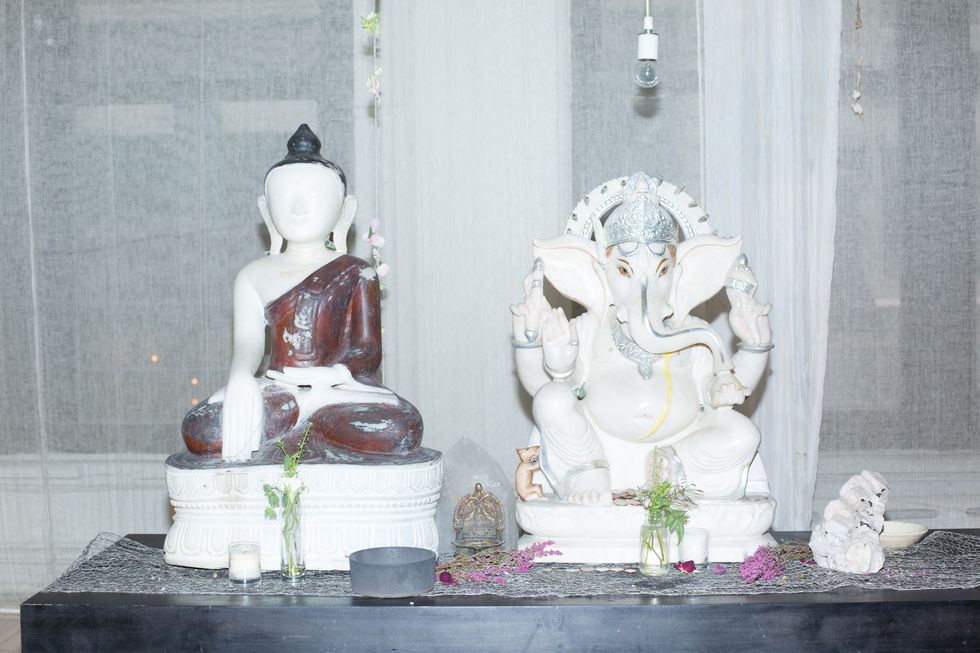
Is it important to continue to practice gratitude, even when you’re not really feeling it?
“You shouldn’t force yourself to be grateful. You just have to ask the question: What am I grateful for? Something will always come up. Maybe it’s your child, maybe it’s the fact that you haven’t lost a job when a lot of people have, maybe it’s that you have an opportunity to move your body. There are many things that come up spontaneously. If what comes up for you is a sensation, a shift in perspective, an image, then go with that. Don’t discipline yourself. Forcing yourself to do anything creates anxiety, including forcing yourself to meditate, feel gratitude, or exercise.”
People are talking about re-evaluating who we want to be when we come out of this pandemic, how we want to see the world change, etc. Do you view this moment as a transitional period?
“I think this is a time for rest and reinvention. Maybe get a little deeper into what our core being is. I think the most important thing right now is not to stress about having a vision about what life after the pandemic looks like. What you need to do is reflect. Who am I? What do I really want? What is important in my life? Do I have a purpose? What is the meaning of my existence? And what am I grateful for? These are the most important questions.
“If we live those questions, then life moves us into the answers. If we know the answers, then life stagnates. The worst thing in life is to know the answers. The best thing is to live the questions.”
“You shouldn’t force yourself to be grateful. You just have to ask the question: What am I grateful for? Something will always come up. Maybe it’s your child, maybe it’s the fact that you haven’t lost a job when a lot of people have, maybe it’s that you have an opportunity to move your body. There are many things that come up spontaneously. If what comes up for you is a sensation, a shift in perspective, an image, then go with that. Don’t discipline yourself. Forcing yourself to do anything creates anxiety, including forcing yourself to meditate, feel gratitude, or exercise.”
People are talking about re-evaluating who we want to be when we come out of this pandemic, how we want to see the world change, etc. Do you view this moment as a transitional period?
“I think this is a time for rest and reinvention. Maybe get a little deeper into what our core being is. I think the most important thing right now is not to stress about having a vision about what life after the pandemic looks like. What you need to do is reflect. Who am I? What do I really want? What is important in my life? Do I have a purpose? What is the meaning of my existence? And what am I grateful for? These are the most important questions.
“If we live those questions, then life moves us into the answers. If we know the answers, then life stagnates. The worst thing in life is to know the answers. The best thing is to live the questions.”
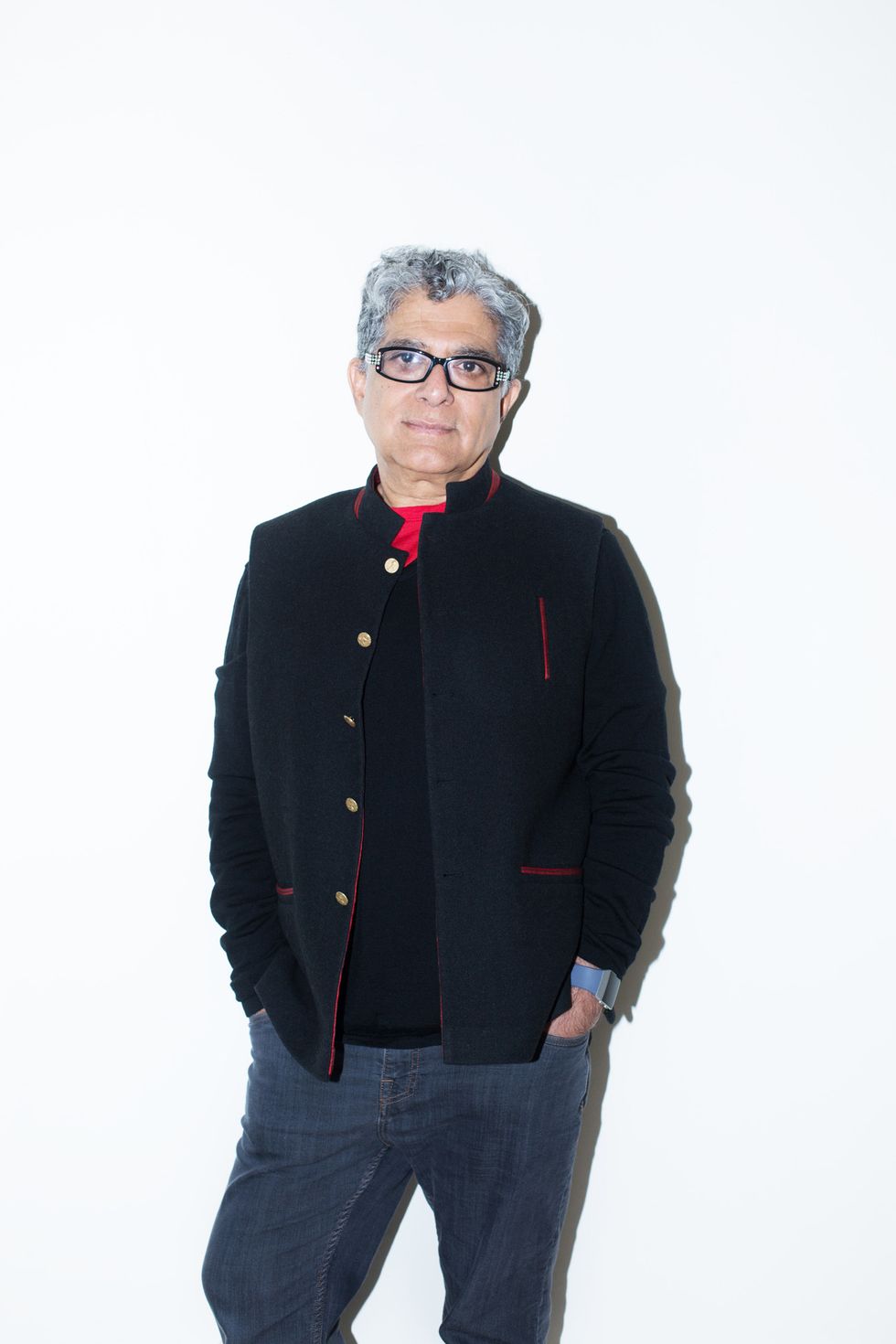
The country feels like it’s at a pressure-cooker moment—last month saw both the inauguration and the Capitol insurrection. The threat of violence still feels real. Do you see this as a symptom of our collective anxiety?
“What we’re seeing right now is definitely a symptom of our collective anxiety, our collective discord, our collective conditioning. But it’s also history—colonialism, slavery, exploitation, rape, pillage, murder, inter-generational trauma. When you look at the situation with that deeper understanding, it’s clear what’s going on. You don’t want to perpetuate that, you want to be the change you want to see.
“I’m not concerned about what Democrats do or what Republicans do. What do I do? And can I create an ecosystem globally—and today it is possible through social media—that actually functions as the global human brain? The global human brain is on the internet. And we can influence it. I can send you an emoji with a kiss and a hug and you might get a dopamine hit. On the other hand, I could send you an abusive troll and you get a cortisol hit. Unless we use this power responsibly, we’re doomed.”
To really get anywhere—both culturally and personally—there is a lot of fear we have to let go of…
“It’s not a cliché anymore, it’s the truth: The opposite of fear is love. Period. I say ‘love in action’ is the mantra. Love without action is irrelevant. Action without love is meaningless. When you express love in action, everyone supports you.”
“What we’re seeing right now is definitely a symptom of our collective anxiety, our collective discord, our collective conditioning. But it’s also history—colonialism, slavery, exploitation, rape, pillage, murder, inter-generational trauma. When you look at the situation with that deeper understanding, it’s clear what’s going on. You don’t want to perpetuate that, you want to be the change you want to see.
“I’m not concerned about what Democrats do or what Republicans do. What do I do? And can I create an ecosystem globally—and today it is possible through social media—that actually functions as the global human brain? The global human brain is on the internet. And we can influence it. I can send you an emoji with a kiss and a hug and you might get a dopamine hit. On the other hand, I could send you an abusive troll and you get a cortisol hit. Unless we use this power responsibly, we’re doomed.”
To really get anywhere—both culturally and personally—there is a lot of fear we have to let go of…
“It’s not a cliché anymore, it’s the truth: The opposite of fear is love. Period. I say ‘love in action’ is the mantra. Love without action is irrelevant. Action without love is meaningless. When you express love in action, everyone supports you.”
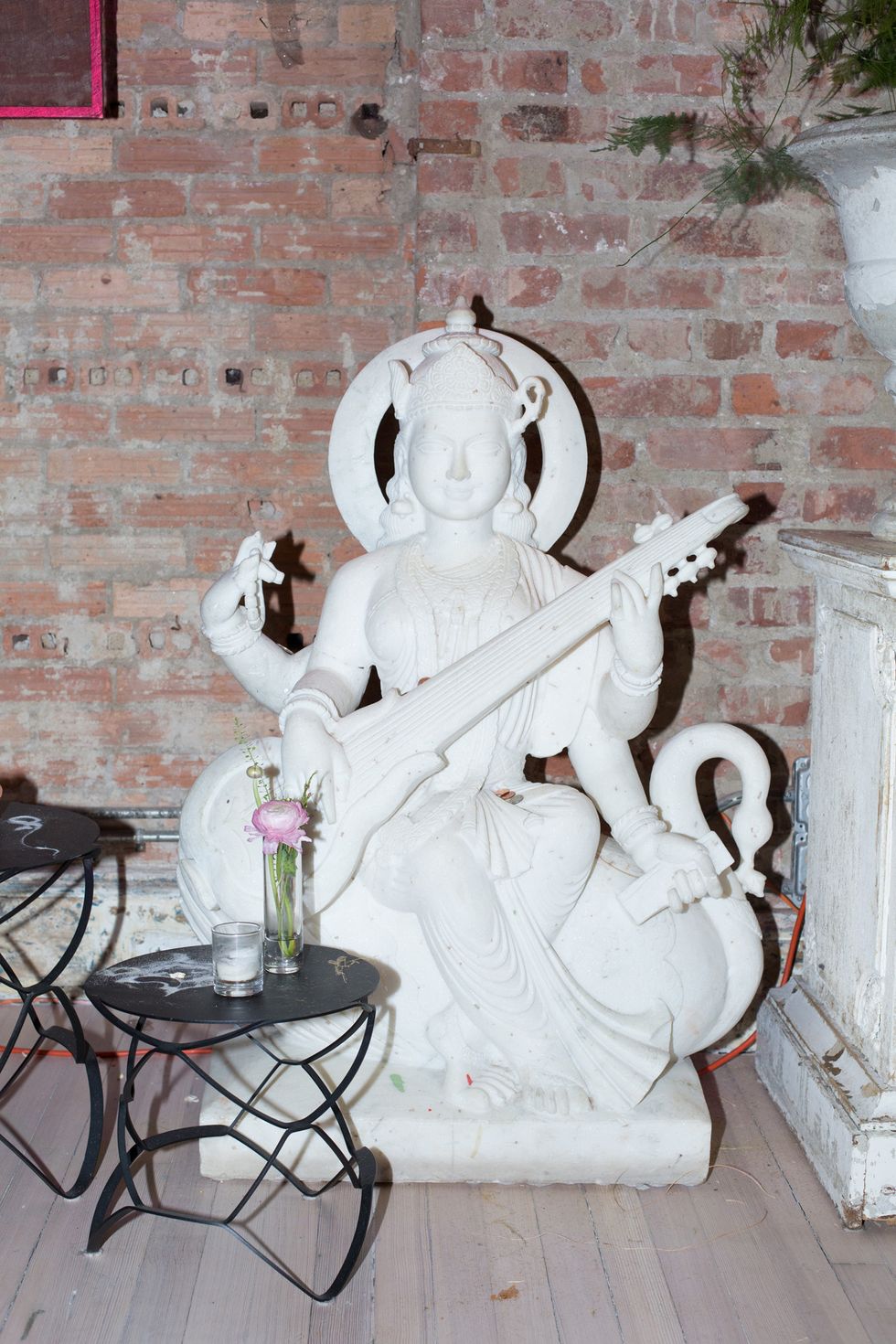
What meditation practices can help us work through some of our day-to-day stressors?
“I have hundreds of meditations on the Chopra App. And there is a new app, Digital Deepak, which is personalized coaching with my avatar. But anybody can stop at any moment, take a few breaths, smile, and make a conscious choice. I call this the STOP formula.
“S - Stop.
“T - Take three deep breaths and smile.
“O - Observe your body and breath.
“P - Proceed with a conscious choice.
“You can do that anytime, anywhere.”
What have you been working on with the International WELL Building Institute?
“I’ve worked with the International WELL Building Institute now for many years. What we’re looking at is the fact that 90 percent of our time these days is spent indoors. Originally, we were focused on creating environments—air quality, water, temperature, lighting—that are conducive to well-being. But now, with COVID-19, we’ve learned that indoor environments spread pollution, bacteria, and infection far worse than outdoor environments. There are monitoring systems that can see how much particulate matter is inside a space and what the risk for transmission of infection is. This is an extension of an effort that has been going on for many years, starting with the Green Building Standard, and now we have the Well Building Standard. Whether it’s schools, hospitals, retail, everyone will be encouraged to create healthy environments because the environment is our extended body.”
And what about creating healthy environments for ourselves at home?
“The most important thing is creating an environment that is conducive to sleep at night. Dark room, sound-free, no blue light. In general, filter your water. Make sure the humidity is appropriate for the time of day and season.
“And start monitoring both your emotional state and your biological state. The more you experience love, compassion, joy, empathy, and gratitude, the better your body will feel and the healthier your choices will be.”
Want more stories like this?
The Psychology of Supplements—Why We Take Them But May Not Need Them
The Tea on Taraji P. Henson: She Is Exactly Who You Think She Is
This Ancient Beverage Might Be the Key to Relieving Your Stress
“I have hundreds of meditations on the Chopra App. And there is a new app, Digital Deepak, which is personalized coaching with my avatar. But anybody can stop at any moment, take a few breaths, smile, and make a conscious choice. I call this the STOP formula.
“S - Stop.
“T - Take three deep breaths and smile.
“O - Observe your body and breath.
“P - Proceed with a conscious choice.
“You can do that anytime, anywhere.”
What have you been working on with the International WELL Building Institute?
“I’ve worked with the International WELL Building Institute now for many years. What we’re looking at is the fact that 90 percent of our time these days is spent indoors. Originally, we were focused on creating environments—air quality, water, temperature, lighting—that are conducive to well-being. But now, with COVID-19, we’ve learned that indoor environments spread pollution, bacteria, and infection far worse than outdoor environments. There are monitoring systems that can see how much particulate matter is inside a space and what the risk for transmission of infection is. This is an extension of an effort that has been going on for many years, starting with the Green Building Standard, and now we have the Well Building Standard. Whether it’s schools, hospitals, retail, everyone will be encouraged to create healthy environments because the environment is our extended body.”
And what about creating healthy environments for ourselves at home?
“The most important thing is creating an environment that is conducive to sleep at night. Dark room, sound-free, no blue light. In general, filter your water. Make sure the humidity is appropriate for the time of day and season.
“And start monitoring both your emotional state and your biological state. The more you experience love, compassion, joy, empathy, and gratitude, the better your body will feel and the healthier your choices will be.”
Want more stories like this?
The Psychology of Supplements—Why We Take Them But May Not Need Them
The Tea on Taraji P. Henson: She Is Exactly Who You Think She Is
This Ancient Beverage Might Be the Key to Relieving Your Stress